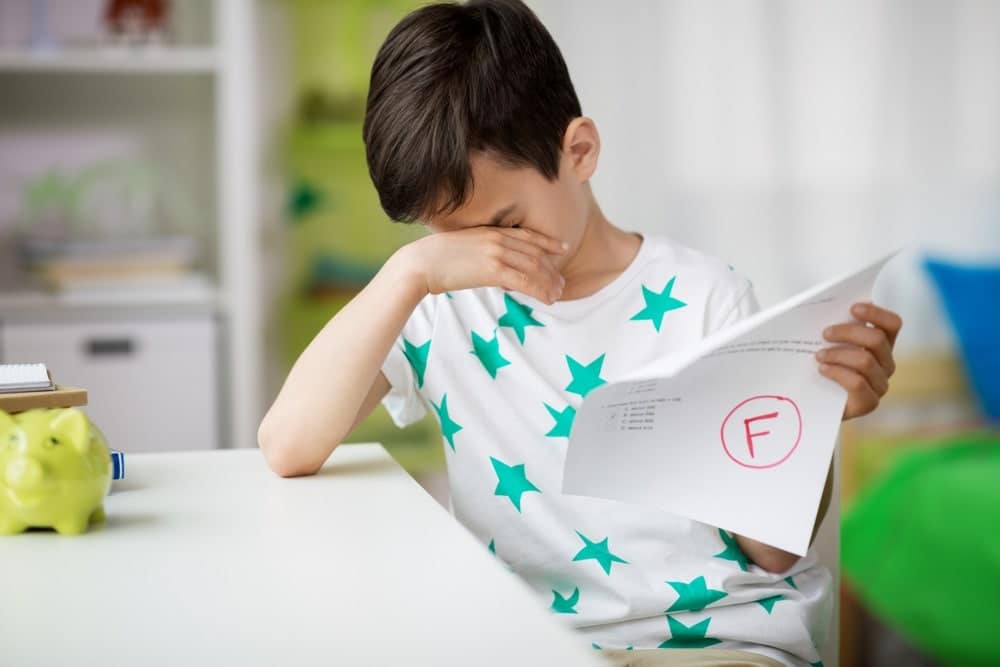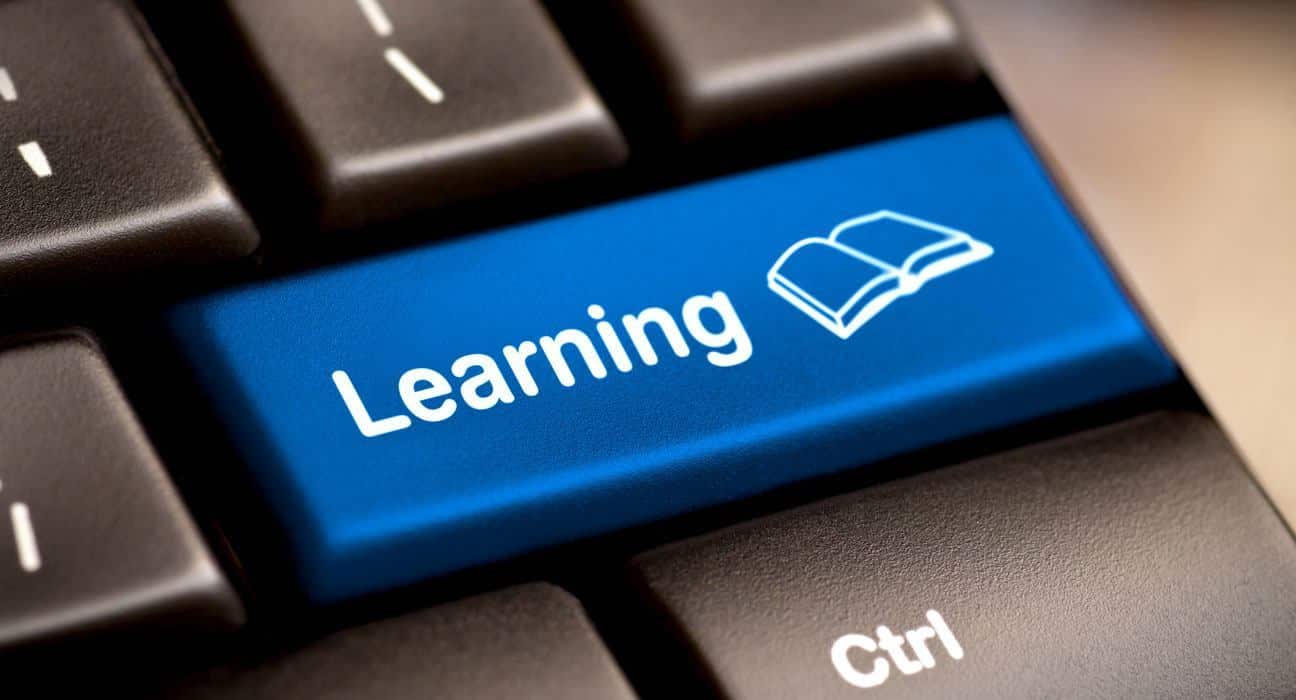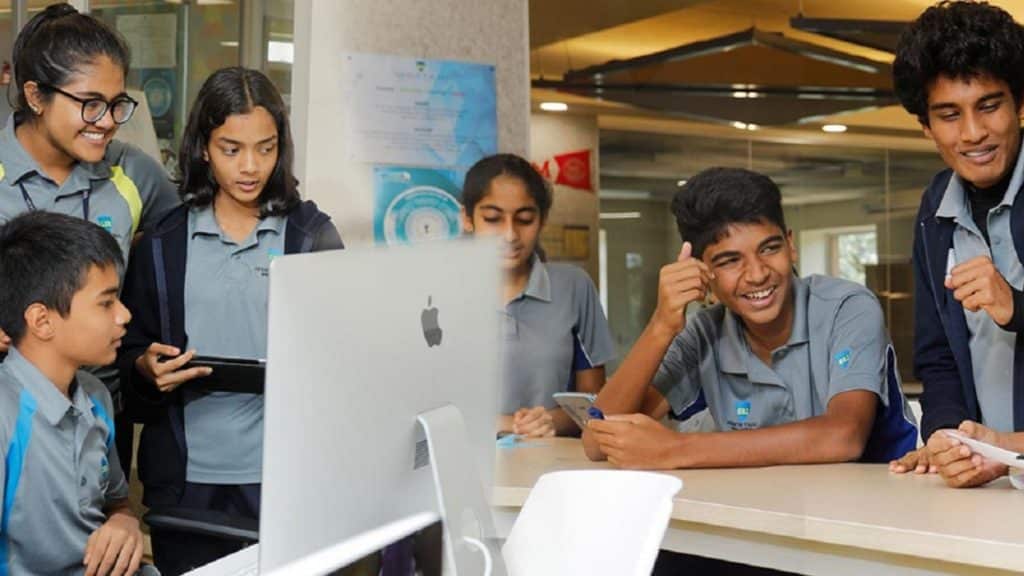Nilai rapor merupakan bagian yang menegangkan dari sekolah anak Anda. Ketidakpastian dapat menjadi hal yang tidak mengenakkan bagi siswa dan orang tua.
Nilai rapor yang buruk dapat menyebabkan frustrasi, ketegangan, dan kesedihan di kalangan anak-anak dan remaja. Hal ini dapat menimbulkan stres antara Anda dan anak Anda, yang berujung pada situasi yang buruk. Rapor yang tidak memuaskan dapat membantu mengatasi perilaku yang tidak diinginkan dan mengembalikan anak Anda ke jalur yang benar jika ditangani dengan tepat. Nilai yang buruk menimbulkan kekhawatiran di kalangan orang tua bahwa anak mereka menghadapi rintangan pendidikan yang dapat menunda ambisi masa depan.
Kami telah menyusun saran rapor terbaik kami untuk membantu Anda dan anak Anda merencanakan kesuksesan di masa depan.
CARA MEMBACA LAPORAN KARTU
Laporan mungkin sulit dipahami. Laporan tersebut penuh dengan nilai dan terminologi yang mungkin tidak berarti bagi orang tua karena perubahan kurikulum dan standar pelaporan.
Anda harus dapat memahami apa yang Anda baca untuk mengatasi masalah apa pun yang mungkin Anda miliki tentang rapor anak Anda.

# BACA KATA GURU
Dalam banyak situasi, komentar guru lebih berguna daripada nilai. Komentar ini membantu Anda memahami kekuatan dan kelemahan anak Anda serta kinerja mereka secara keseluruhan.
# JADWALKAN SESI ORANG TUA-GURU
Jika nilai anak Anda membuat Anda khawatir, adakan pertemuan dengan profesor mereka. Guru tersebut telah menghabiskan waktu berjam-jam setiap hari untuk memantau dan mengajar anak Anda. Ia sering kali dapat melihat di mana anak Anda mengalami kesulitan dan menyarankan strategi untuk memperbaikinya.
# TEMPATKAN PADA KONTEKS YANG TEPAT
Tergantung pada tingkatannya, berbagai kemampuan dan area kinerja akan dievaluasi.
Di sekolah dasar, nilai anak Anda akan didasarkan pada perilaku dan kemampuan sosial. Membaca dan menulis adalah kemampuan dasar penting yang akan dibutuhkan anak Anda di masa depan.
Di sekolah, anak Anda akan dihadapkan pada materi dan konsep yang lebih sulit. Pada tahap ini, perhatikan mata pelajaran apa pun yang mungkin membuat anak Anda kesulitan atau tertinggal.
BERSIAP UNTUK PERCAKAPAN KARTU LAPORAN
Rapor pertama membuat orang tua dan anak stres. Mungkin ada beberapa kejutan yang tidak menyenangkan dan tanda-tanda bahaya, yang cukup membuat stres, tetapi sekarang saatnya untuk wawancara orang tua-guru.
Diskusikan rapor anak Anda, apakah Anda senang atau tidak. Dengan pengetahuan tentang keterampilan dan kekurangan anak Anda, Anda dapat membantu mereka berprestasi. Hal ini juga membantu anak Anda melihat Anda sebagai peserta aktif yang mendukung dalam pendidikan mereka.

# PERSIAPKAN DISKUSI SEBELUMNYA
Siapkan hal-hal penting untuk dibahas dengan anak Anda sebelum Anda bertemu. Perencanaan memungkinkan Anda untuk memikirkan apa yang ingin Anda diskusikan dengan anak Anda (dan bagaimana) untuk percakapan yang lebih bermanfaat.
# PASTIKAN UNTUK MENYAMPAIKAN TUJUAN ANDA
Beritahu anak-anak Anda bahwa Anda perlu membahas rapor mereka. Jangan berbasa-basi.
# DATANG BERSAMA DAN JADILAH NYAMAN
Rencanakan waktu tenang bersama keluarga untuk membahas rapor. Jangan membahas nilai di garasi saat anak Anda bermain sepatu roda. Ini adalah pembicaraan penting yang memerlukan pertimbangan cermat.
# SINGKIRKAN ELEMEN YANG MENGGANGGU
Pastikan Anda dan anak Anda berbicara di lingkungan yang tenang. Matikan TV dan perangkat lain yang dapat mengganggu Anda atau anak Anda.
# MULAILAH DENGAN PIKIRAN POSITIF
Mulailah dengan menyebutkan hal-hal baik tentang rapor, tidak peduli seberapa kecilnya. Anak Anda akan merasa rileks dan menikmati obrolan yang menyenangkan.
# ULAS KEKUATAN
Memeriksa rapor bukan hanya tentang menemukan kekurangan; ini juga merupakan kesempatan untuk mengakui kelebihan. Tingkatkan kepercayaan diri anak Anda dengan mengatakan hal-hal seperti, "Kamu hebat dalam berhitung!" Ini membantu anak Anda melihat kelebihan mereka dan memotivasi mereka untuk meningkatkan kemampuan di bidang lain.
# PERHATIKAN MASALAHNYA
Biarkan anak Anda mengungkapkan pendapat dan kekhawatirannya. Membiarkan anak Anda membahas kemajuan akademisnya atau alasan kesulitannya akan membantu Anda lebih memahami cara membantunya.

# MENYELESAIKAN MASALAH
Anak-anak yang bermasalah di sekolah cenderung paling berisik. Mintalah anak Anda untuk mempertimbangkan keluhannya dan cara mengatasinya. Hal ini mendorong anak Anda untuk melupakan masalahnya dan membangun pandangan yang lebih positif.
# AKHIRKAN DENGAN NAMA OPTIMIS
Yakinkan anak Anda bahwa Anda ada di sini untuk membantu menetapkan strategi menuju kesuksesan.

BERSIAP UNTUK SUKSES PADA LAPORAN KARTU YANG AKAN DATANG
Menetapkan tujuan penting untuk keberhasilan akademis. Pembahasan rapor berikutnya akan menjadi pembahasan yang menyenangkan jika Anda telah merencanakan terlebih dahulu untuk semester mendatang.
# IDENTIFIKASI AREA FOKUS
Tentukan bidang atau mata pelajaran mana yang memerlukan pekerjaan terbanyak berdasarkan nilai anak Anda dan pembahasan Anda.
# RENCANAKAN DENGAN ANAK ANDA
Setelah berdiskusi dengan anak Anda tentang area mana yang perlu ditingkatkan, buatlah strategi. Strategi ini harus mencakup tujuan anak Anda, strategi untuk mencapainya, dan dukungan Anda.
# JELAJAHI SUMBER DAYA EKSTERNAL
Jika Anda tidak dapat membantu dengan topik tertentu, carilah bantuan dari luar. Pertimbangkan kelompok belajar di sekolah, pelajaran tambahan sepulang sekolah dengan guru privat anak Anda, atau tutor.
# PANTAU KEMAJUAN
Setiap hari atau minggu, pantau kemajuan anak Anda. Diskusikan apa yang dipelajari anak Anda di kelas, tugasnya saat ini, dan tantangan baru apa pun.

LAPORAN YANG BURUK TAK AKAN MENGAKHIRI DUNIA
Tarik napas dan rileks. Bahkan jika hal seperti ini terjadi, dunia tidak akan kiamat. Ingatlah bahwa nilai jelek tidak sama dengan kegagalan. Gunakan itu untuk membantu anak Anda mempelajari keterampilan akademis dan kehidupan.
Persiapkan masa depan anak Anda sekarang, daripada menunggu dia kembali ke jalurnya.
Membaca dan memahami rapor anak Anda adalah Langkah pertama untuk membantu anak Anda mencapai potensi penuhnya, apa pun solusi yang Anda pilih.
Jika anak Anda sedang mengalami kesulitan dan Anda tidak yakin bagaimana cara membantunya, carilah dukungan luar. Menemukan Kampus Harimau untuk membantu anak Anda meningkatkan nilainya.








